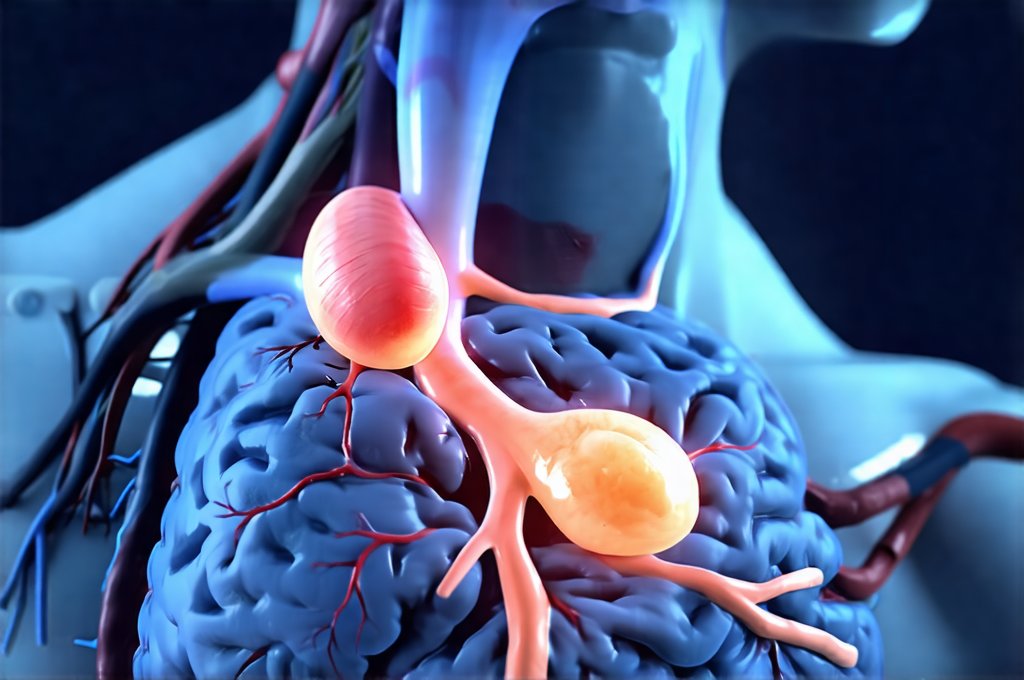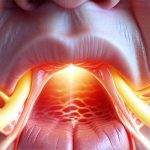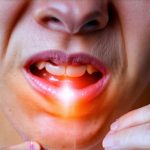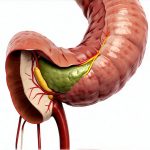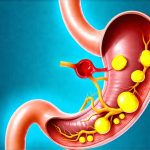Gastroesophageal reflux disease (GERD) is a remarkably common condition, affecting millions worldwide. Most people associate it with classic symptoms like heartburn, regurgitation, and difficulty swallowing – the burning sensation in the chest, the sour taste at the back of the throat, and that uncomfortable feeling of food being stuck. However, GERD can manifest in surprisingly diverse ways, often leading to symptoms individuals don’t readily connect to digestive health. These less typical presentations can make diagnosis challenging and cause significant anxiety for those experiencing them. Understanding the broader spectrum of GERD symptoms is crucial for early recognition and appropriate management.
Beyond the primary digestive complaints, some people with GERD report experiencing systemic effects during an episode, including a sudden onset of chills. This seemingly unrelated symptom raises questions about the connection between the digestive system and other bodily functions. It’s important to recognize that while these chills aren’t typically caused directly by reflux itself, they can be a component of the body’s physiological response to discomfort and stress associated with GERD episodes. The experience varies significantly from person to person; some describe it as mild goosebumps, others report full-blown shivering, even without being cold. This article will delve into this phenomenon – exploring potential reasons why chills accompany GERD, how to differentiate them from other conditions, and what steps can be taken to manage both the reflux itself and its accompanying symptoms.
The Connection Between GERD and Physiological Stress Response
The experience of sudden chills during a GERD episode isn’t necessarily a direct result of stomach acid irritating the esophagus. Instead, it’s often linked to the body’s stress response. When you experience discomfort – whether physical pain from heartburn or anxiety about an impending reflux event – your nervous system activates. This activation triggers what is known as the “fight-or-flight” response, even if there’s no external threat. This response prepares the body for action, and a key component of this preparation involves changes in blood flow and temperature regulation.
The vagus nerve plays a significant role here. It’s a long cranial nerve that runs from the brainstem down to the abdomen, influencing numerous bodily functions including digestion and heart rate. GERD symptoms can stimulate the vagus nerve, leading to fluctuations in these functions. These fluctuations – alongside the release of stress hormones like cortisol and adrenaline – can affect temperature regulation, potentially causing chills or even a feeling of coldness despite being at room temperature. It’s similar to how you might feel chilled when extremely anxious, even in a warm environment.
Furthermore, chronic inflammation associated with GERD can contribute to this effect. Prolonged acid exposure irritates the esophageal lining, leading to low-grade systemic inflammation that may alter the body’s thermoregulatory processes. This means your “thermostat” might be more sensitive and prone to misfiring, resulting in unexpected temperature shifts. It’s important to note that this is a complex interplay of neurological, hormonal, and inflammatory factors, and individual experiences can vary widely. Managing liver stress is also crucial for overall health.
Discerning GERD-Related Chills from Other Causes
The challenge with identifying chills as related to GERD lies in the fact that chills are a symptom of many different conditions. It’s crucial to rule out other possible causes before attributing them solely to reflux. Here’s a breakdown of what to consider:
- Infections: Viral or bacterial infections often present with chills, fever, and body aches. If you suspect an infection, seek medical attention immediately.
- Thyroid Issues: Hypothyroidism (underactive thyroid) can cause sensitivity to cold temperatures and unexplained chills. A simple blood test can determine if your thyroid is functioning properly.
- Anemia: Iron deficiency anemia can lead to fatigue, weakness, and a feeling of being cold. Again, a blood test is necessary for diagnosis.
- Medication Side Effects: Some medications may have chills as a side effect. Review the information provided with your prescriptions.
- Neurological Conditions: In rare cases, neurological conditions can affect temperature regulation.
If you experience chills frequently or alongside other concerning symptoms like fever, shortness of breath, or severe pain, do not self-diagnose. Consult a healthcare professional to determine the underlying cause and receive appropriate treatment. Keeping a symptom journal can be incredibly helpful when discussing your concerns with your doctor – note when the chills occur, what you were doing beforehand, any accompanying symptoms, and whether they are relieved by typical GERD treatments. Understanding GERD without esophagitis can also help you better communicate with your doctor.
Managing Chills Associated with GERD Episodes
While addressing the underlying GERD is the primary goal, there are steps you can take to manage the chills themselves during an episode:
- Warmth: Simple measures like wrapping yourself in a blanket or drinking a warm beverage (non-acidic, of course!) can often provide immediate relief.
- Relaxation Techniques: Deep breathing exercises, meditation, or progressive muscle relaxation can help calm the nervous system and reduce stress hormone release, potentially lessening the chills. Practicing these techniques regularly – not just during an episode – can build resilience and improve your overall response to stress.
- Gentle Movement: Light stretching or a slow walk might stimulate circulation and counteract the feeling of coldness. Avoid strenuous exercise during an active GERD episode.
It’s also important to focus on strategies for managing GERD itself. This may include:
- Dietary Modifications: Identify and avoid trigger foods (spicy foods, fatty foods, caffeine, alcohol, chocolate, mint) that exacerbate your reflux.
- Lifestyle Changes: Elevate the head of your bed, avoid eating large meals before bedtime, lose weight if overweight, and quit smoking.
- Medications: Over-the-counter or prescription medications (antacids, H2 blockers, proton pump inhibitors) can help reduce stomach acid production. Always consult with a doctor before starting any new medication. Consider dinner meals specifically designed for digestive health.
The Role of Anxiety and GERD
Anxiety and GERD often have a bidirectional relationship – anxiety can worsen GERD symptoms, and having GERD can increase anxiety. The anticipation of an episode, the discomfort of heartburn, and the fear of complications can all contribute to increased anxiety levels. This creates a vicious cycle where stress exacerbates reflux, which then increases anxiety.
This is directly relevant to understanding the chills because anxiety significantly impacts the body’s physiological response. When anxious, your sympathetic nervous system kicks into high gear, leading to increased heart rate, rapid breathing, and changes in blood flow – all of which can contribute to a feeling of coldness or shivering. Addressing underlying anxiety through therapy (cognitive behavioral therapy is often effective) or stress management techniques can therefore be an important part of managing GERD and its associated symptoms like chills.
Consider exploring mindfulness practices, yoga, or other relaxation methods to help manage your anxiety levels. Recognizing the connection between your mental state and physical symptoms – and actively working to reduce stress – can significantly improve your overall well-being and quality of life. It’s also important to remember that you are not alone; many people experience these challenges, and seeking support from friends, family, or a healthcare professional is a sign of strength, not weakness. It’s important to understand how to navigate employment while managing chronic conditions like GERD. If you are experiencing significant fatigue alongside these symptoms, consider learning how to cope with fatigue. Finally, understanding the difference between GERD with esophagitis and without is key to proper diagnosis and treatment.

